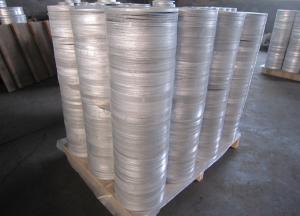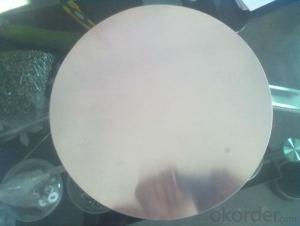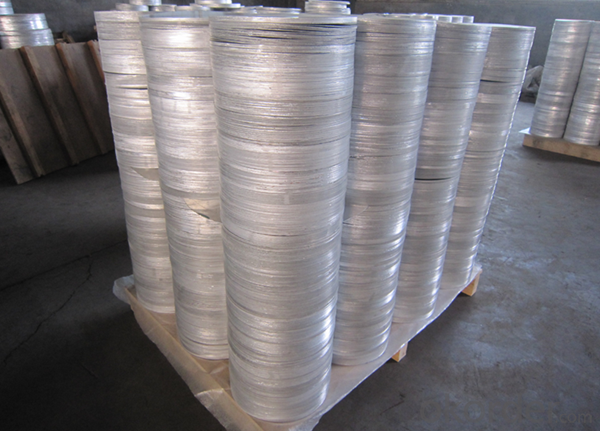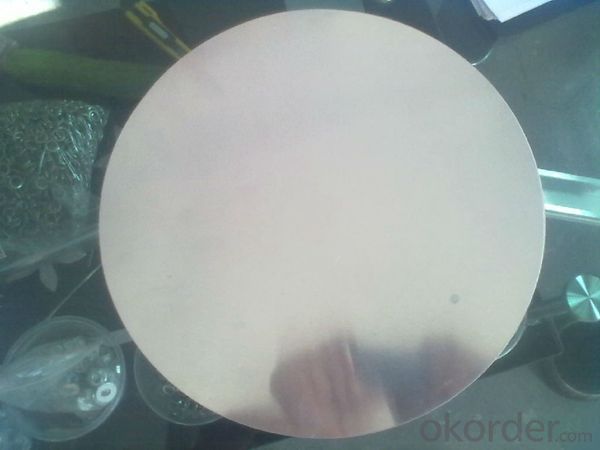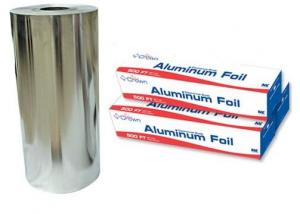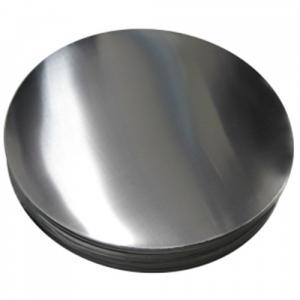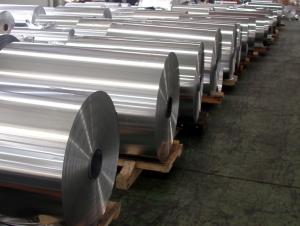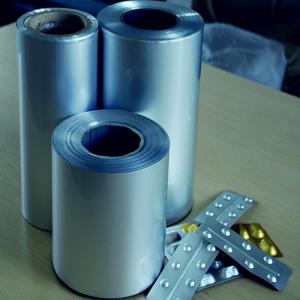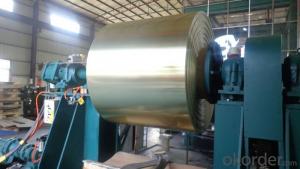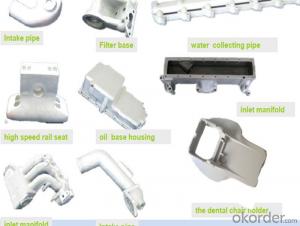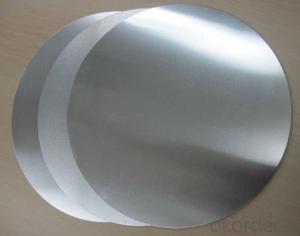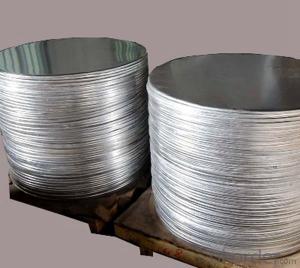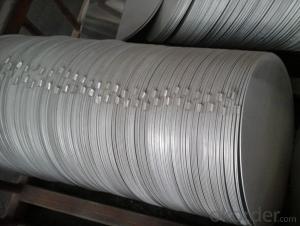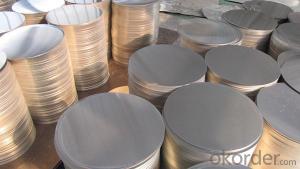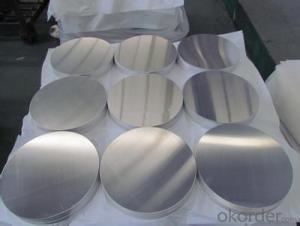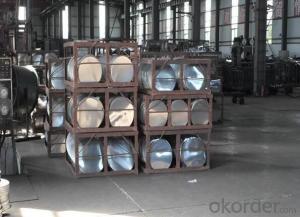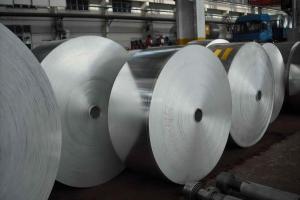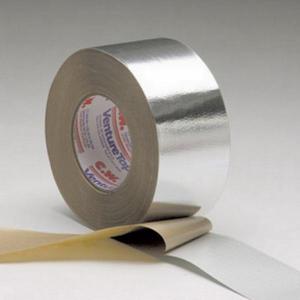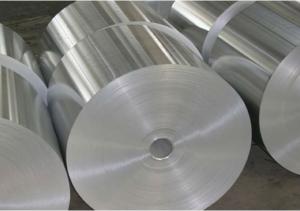Aluminum Hard-Anodized Aluminum Circle Sheet for Cookware
- Loading Port:
- Shanghai
- Payment Terms:
- TT OR LC
- Min Order Qty:
- 5 m.t.
- Supply Capability:
- 10000 m.t./month
OKorder Service Pledge
OKorder Financial Service
You Might Also Like
Specification
1.Structure of Hard-anodized Aluminum Circle Sheet for Cookware Description
• Product: Aluminim Circle
• Application: It is used in cookware, engineering, lighting purpose, fried pans, non-sticky pans, cooking pots, kettles, hard anodize cook wire, pressure cooker and house hold utensils, reflector of the light, etc
• Advantage: Deep drawing and hard anodizing quality Aluminum Circle Sheet can be supplied. Our Aluminum Circle is RoHS and REACH compliance and uses well-protected packing. Our circles are excellent material for producing cookware, utensil, pots, pans and kettles.
2.Main Features of the Hard-anodized Aluminum Circle Sheet for Cookware
• High manufacturing accuracy
• Smooth surface
• No waves
• High strength of extension and yield
• Well packaged
3.Hard-anodized Aluminum Circle Sheet for Cookware Images
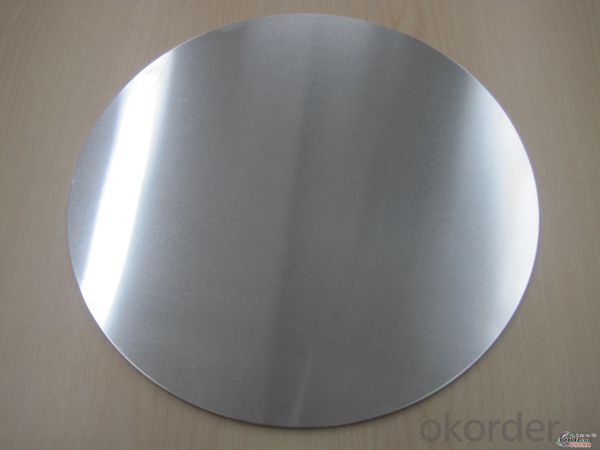
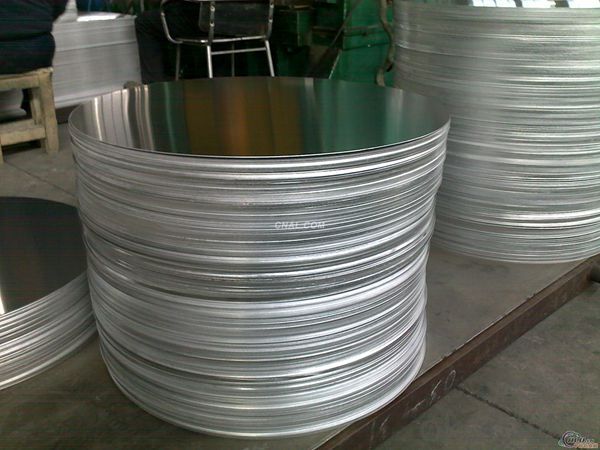
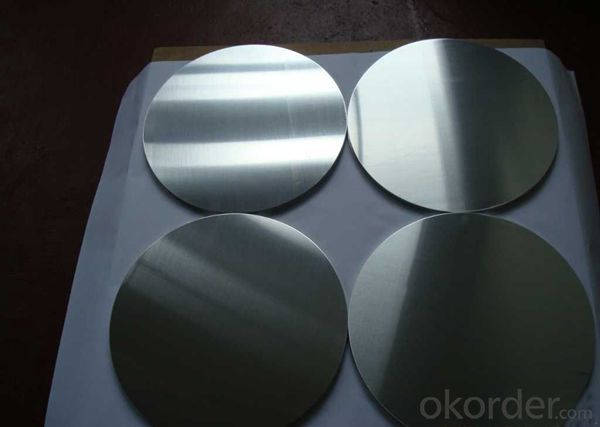
4.Hard-anodized Aluminum Circle Sheet for Cookware Specification
Alloy | AA1050,AA1060,AA1100 AA3003etc. |
Temper | O,H14 |
Thickness | 0.5MM-4MM |
Diagonal | 100-1200MM |
Standard | GB/T 3880-2006 |
5.FAQ of Hard-anodized Aluminum Circle Sheet for Cookware
We have organized several common questions for our clients,may help you sincerely:
① How about your company?
A world class manufacturer & supplier of aluminum coil and alloy blanks. Aluminum production base is comprised of 18 aluminum annealers, 10 coil and foil mills, 4 continuous production lines, 2 hot rolling production line and 3 prepainted lines.
Export 5000 tons per month to Asia, America and Middle East. Always do the best for our clients.
②Can you guarantee the quality of the products?
We are responsible for the quality of materials to get a long-term cooperation with clients in a reasonable period of time and we are glad to arrange and coordinate any third party inspection for you.
③What is the delivery time after purchase?
35 day after receiving client’s deposit or correct LC
- Q: Is it possible to utilize aluminum as a material for manufacturing solar cells?
- <p>Aluminum is not typically used to make solar cells due to its properties. Solar cells are usually made from materials like silicon, which is a semiconductor and can efficiently convert sunlight into electricity. Aluminum, being a good conductor, is used in the manufacturing process of solar cells for its electrical conductivity, but not as the active material that generates electricity. It is used in the form of aluminum paste in the back surface field of solar cells to create a conductive layer and in the frame to provide structural support. However, for the photovoltaic conversion process itself, other materials are more suitable.</p>
- Q: This question asks about the impact of weathering on aluminum surfaces, including potential changes and effects.
- <p>The weathering process can significantly affect aluminum surfaces. Aluminum naturally forms a protective oxide layer when exposed to air, which provides corrosion resistance. However, over time, weathering can lead to the thinning or damage of this oxide layer, especially in harsh environments. This can result in corrosion, pitting, or discoloration. Additionally, weathering can cause physical changes such as surface roughening due to the differential erosion of the aluminum and its protective layer. In coastal areas, the presence of salt can accelerate these effects. Proper maintenance, such as regular cleaning and protective coatings, can help mitigate the effects of weathering on aluminum surfaces.</p>
- Q: This question asks about the potential health hazards that can result from exposure to aluminum.
- <p>Aluminum exposure has been associated with several health risks, although the scientific consensus is not entirely clear due to varying study results. Some potential health risks include neurological disorders such as Alzheimer's disease, although this link is still debated. Aluminum may also contribute to bone diseases, as it can interfere with calcium absorption. There are concerns about aluminum's role in kidney dysfunction and possible links to certain types of cancer. However, it's important to note that the human body naturally excretes aluminum, and only a small fraction of ingested aluminum is absorbed. More research is needed to establish definitive links between aluminum exposure and health outcomes.</p>
- Q: Is it safe and practical to use old aluminum cookware that has been stored for a long time?
- <p>Yes, you can reuse old aluminum cookware, but it's important to check its condition first. Look for any signs of damage, such as pits, scratches, or warping, as these can affect the cookware's performance and potentially release aluminum into your food. If the cookware is in good condition, clean it thoroughly and season it if necessary. Remember, aluminum cookware is not suitable for acidic foods or high heat, so use it accordingly to prolong its lifespan and maintain food safety.</p>
- Q: This question asks about the reactivity of aluminum with various substances, including its chemical reactions and properties.
- <p>Aluminum is a highly reactive metal that readily reacts with oxygen to form a protective layer of aluminum oxide on its surface. It can also react with acids, such as hydrochloric or sulfuric acid, to produce hydrogen gas and aluminum salts. In the presence of a strong base, aluminum can react to form aluminates and hydrogen gas. Additionally, aluminum can reduce certain metal oxides, such as iron oxide, in a thermite reaction. However, due to its reactivity, aluminum is often used in alloys with other metals to improve its strength and corrosion resistance.</p>
- Q: Is it possible to use aluminum as a material for battery production?
- <p>Yes, aluminum can be used to make batteries. Aluminum-air batteries are a type of metal-air battery where aluminum serves as the anode and undergoes oxidation. These batteries have a high energy density and are environmentally friendly, as they produce minimal waste. However, they face challenges such as water sensitivity and the need for alkaline electrolytes, which limit their practical applications. Research is ongoing to improve their performance and make them more viable for widespread use.</p>
- Q: Is it possible to utilize aluminum in car manufacturing to enhance fuel efficiency?
- <p>Yes, using aluminum in car manufacturing can contribute to increased fuel efficiency. Aluminum is lighter than traditional steel, which can reduce the overall weight of a vehicle. A lighter car requires less energy to move, which can lead to better fuel economy. Additionally, aluminum has good strength-to-weight ratio, allowing for a strong yet lighter structure. However, it's important to note that while aluminum can enhance fuel efficiency, it also has higher manufacturing costs and may not be as recyclable as steel.</p>
- Q: This question asks for a comparison of the benefits and drawbacks of using aluminum as a material in construction projects.
- <p>Aluminum in construction offers several advantages, including its lightweight nature, which reduces structural load and facilitates easier transportation and installation. It is also highly resistant to corrosion, making it ideal for outdoor applications and in areas with harsh weather conditions. Aluminum's recyclability contributes to sustainability, and it has a high strength-to-weight ratio, enhancing structural integrity. However, it has some disadvantages, such as being a poor conductor of heat, which may require additional insulation. It can also be more expensive than traditional materials like steel or concrete, and it dents easily, necessitating careful handling and maintenance.</p>
- Q: Is it possible to utilize aluminum as a material for food containers?
- <p>Yes, aluminum is commonly used to make food containers due to its lightweight, durability, and good thermal conductivity. It's important to note that aluminum containers are often coated or lined with materials like plastic or enamel to prevent direct contact with food, as aluminum can react with acidic or alkaline foods and potentially leach into the food. Additionally, while aluminum is generally safe, there are concerns about its long-term health effects, so its use in food containers is regulated to ensure safety.</p>
- Q: What precautions should be taken when handling molten aluminum to ensure safety?
- <p>Safety measures for working with molten aluminum include wearing appropriate personal protective equipment (PPE) such as heat-resistant gloves, face shields, and fire-resistant clothing. Ensure proper ventilation to avoid inhaling fumes. Use non-ferrous tools to avoid reactions with molten aluminum. Keep the work area clean and free from water, as it can cause violent reactions. Train workers on emergency procedures and have fire extinguishers suitable for metal fires readily available. Always work in teams to ensure someone can assist in case of an emergency.</p>
Send your message to us
Aluminum Hard-Anodized Aluminum Circle Sheet for Cookware
- Loading Port:
- Shanghai
- Payment Terms:
- TT OR LC
- Min Order Qty:
- 5 m.t.
- Supply Capability:
- 10000 m.t./month
OKorder Service Pledge
OKorder Financial Service
Similar products
Hot products
Hot Searches
Related keywords
